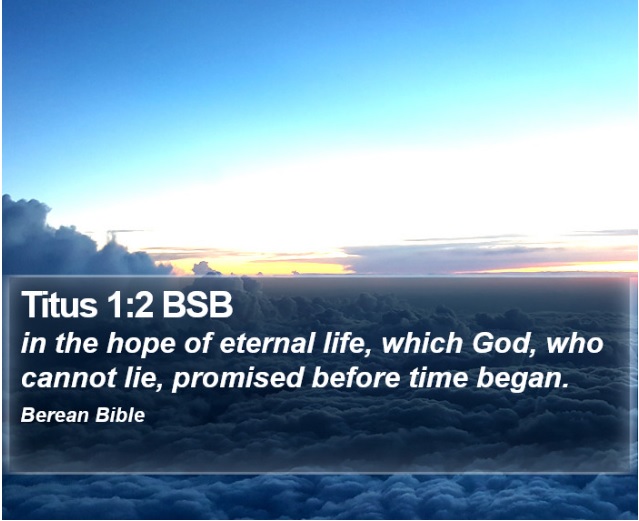“Go therefore and make disciples of all the nations…teaching them to observe all that I commanded you; and lo, I am with you always, even to the end of the age” (Matthew 28:19-20, NASB).
——————–
Contents
1) Learning From What God Cannot Do (Jerry Fite)
2) Respecting the Power of God’s Word (Heath Rogers)
——————–

-1-
Learning From What God Cannot Do
Jerry Fite
To say God cannot do something seems to contradict the concept of an omnipotent or all-powerful God. Jehovah, in the face of laughing at His promising an old couple that they would have a child, challenges the doubters with, “is anything too hard for Jehovah?” (Genesis 18:14). When the Lord’s own apostles were wondering at their failure to cast out demons, Jesus looked to their “little faith” as the problem and said that if they had faith, even as small as a grain of mustard seed, they could miraculously remove mountains and “nothing shall be impossible unto you” (Matthew 17:20). Their abilities, in this context, their miraculous abilities were tied to God through their faith in the One who has the power to do all wonders.
While nothing is too hard for Jehovah, even miraculously removing mountains, or casting out demons, there are things the Scriptures point to that are impossible for God to do. These are not contradictions to tear down the truth that God is omnipotent, but instead provide important facts to complete the picture of God, and really strengthen our faith.
While God has the power to do all things, there are things impossible for Him to do for they contradict His holy character. For example, “God cannot lie.” If He could lie, He would potentially contradict His character of always upholding the truth. Lies are the character of the Devil, and form the bleak picture of darkness, which has no place in God’s character: “God is light, and in Him is no darkness at all” (John 8:44-47, I John 1:5).
Because it is impossible for God to lie, we can have confidence in His promises. One of these promises is “eternal life.” Paul writes, “in hope of eternal life, which God who cannot lie promised before times eternal…” (Titus 1:2). The passing of time should not cause us to lose confidence in the proposition that eternal life in Heaven awaits us. Like Paul, we can focus upon God’s character of Truth. God cannot lie, so we continue to hope, knowing that the promise will be fulfilled. God promised Abraham that in Him all the nations of the earth would be blessed. His promise was accompanied by an oath. The Hebrew writer refers to these two things (his promise and oath) as “immutable” and in which “it is impossible for God to lie” (Hebrews 6:18).
Why should we be reminded of God’s promise to bless and multiply Abraham’s seed which found ultimate fulfillment in Christ (Genesis 22:16-18, Galatians 3:15)? So that “we may have a strong encouragement, who have fled for refuge to lay hold of the hope set before us; which we have as an anchor of the soul, a hope both sure and steadfast…” (Hebrews 6:18-19).
Also, God “cannot deny Himself” (2 Timothy 2:13). His character is one of faithfulness, and to deny Himself would contradict the truth of His very being. In essence He is telling us that He exists, therefore we should remain faithful to him through life’s difficulties, trials, and hardships. Man can become weak and quit “enduring” with the Lord and even “deny Him.” It is at this moment of doubt that we need to be reminded of what God cannot do and rise to serve. “If we endure, we shall also reign with Him: if we shall deny Him, He will also deny us: if we are faithless, He abideth faithful: for he cannot deny Himself” (2 Timothy 2:12-13).
Learning what God cannot do, we can know for sure He will remain true to His promises and to His immutable self. This knowledge encourages us to remain faithful, looking forward to eternal life with no doubts.
— Via Glad Tidings, Volume XXXI, No. 14, April 4, 2021
——————–

-2-
Respecting the Power of God’s Word
Heath Rogers
We must respect things that have great power. For example, those who work with electricity learn to be very careful. Electric hazards cause more than 4,000 injuries and more than 300 deaths in the workplace each year. Nearly 800 people die from household electrocutions each year. Those who want to work with or around electricity must have great respect for its power.
As Christians, we must learn to respect the power of God’s word. The spoken word of deity has awesome power. God spoke the physical universe into existence. “By the word of the Lord the heavens were made, and all the host of them by the breath of His mouth… Let all the earth fear the Lord; let all the inhabitants of the world stand in awe of Him. For He spoke, and it was done; He commanded, and it stood fast” (Ps. 33:6, 8-9). Notice: the natural response to God’s creative power is to “fear” and “stand in awe” of Him.
The spoken words of Jesus had amazing power. The Centurion’s servant was healed at the Lord’s word (Matt. 8:7-13). The physical elements obeyed His voice (Mark 4:38-41). Lazarus rose from his grave at the Lord’s command to “come forth” (John 11:43-44).
Were we living then, we would have marveled along with the rest of the witnesses of this great power. However, we must realize that God’s written word is just as powerful.
The Written Word is Sufficient.
“All Scripture is given by inspiration of God, and is profitable for doctrine, for reproof, for correction, for instruction in righteousness, that the man of God may be complete, thoroughly equipped for every good work” (2 Tim. 3:16-17). What other book is needed if all Scripture makes us complete and thoroughly equipped for every good work? God’s written word may not answer every possible question we have (Deut. 29:29), but it gives us everything we need. God’s word saves the lost (Rom. 1:16), provides guidance for our lives (Ps. 119:105), and gives us all things that pertain to life and godliness (2 Pet. 1:3). God’s written word has the power to get the job done.
The sufficiency of the written word is seen in the repeated warnings against adding to or taking away from the Scriptures. “You shall not add to the word which I command you, nor take from it, that you may keep the commandments of the Lord your God which I command you” (Deut. 4:2; c.f. Prov. 30:5-6; Rev. 22:18-19). We must have respect for the sufficiency of the written word.
The Written Word is Relevant.
Some reject the Bible as an outdated book of myths and stories. It may have served a purpose when man was ignorant of the workings of the universe, but we have grown in our knowledge and we need something modern to guide our lives.
The needs of man have not changed. The questions, struggles, and problems of mankind are universal – transcending time and culture. If people would take the time to read the Bible, they would discover that it addresses and offers solutions to problems we are facing today. The Bible may not give the answers people want, but it gives the answers we need.
The Written Word is Punitive.
Not only does the Bible draw lines between right and wrong, but it also states the consequences for doing wrong.
It is possible to violate man’s laws without paying a penalty. We can walk away free if we don’t get caught or convicted. However, God’s law can’t be broken without consequences. It doesn’t matter whether we break the law through ignorance or willful rebellion, there is a price to pay. How do we know this is true? There are immediate consequences to breaking God’s natural laws. Whether we are careless, foolish, or just in the wrong place at the wrong time, we can easily do things that result in injury or death. This is why good parents diligently teach their children about the dangers around them. “Don’t play in the street!” “Don’t pet stray dogs!” “Don’t stick things in electrical outlets!” Nature doesn’t show mercy.
Are we as diligent to warn our children about violating God’s written word? Although they are not immediate, there are severe consequences to breaking God’s moral and righteous laws. Adam and Eve were driven from the Garden of Eden (Gen. 3:24). Nadab and Abihu were consumed by God’s fire (Lev. 10:1-2). Uzza was struck dead for touching the ark (1 Chron. 13:7-10). King Uzziah became a leper for taking on the role of a priest (2 Chron. 26:16-21). The children of Israel perished in the wilderness (1 Cor. 10:1-10). Why? “Now all these things happened to them as examples, and they were written for our admonition, upon whom the ends of the ages have come” (v. 11). These events serve as warnings to us. There are severe consequences to violating God’s written word.
Jesus promised, “He who rejects Me, and does not receive My words, has that which judges him – the word that I have spoken will judge him in the last day” (John 12:48). Our eternal fate depends on the choices we make regarding God’s written word. We must learn to respect its power.
— Via Articles from the Knollwood church of Christ, December 2023
——————–
The Steps That Lead to Eternal Salvation
1) Hear the gospel — for that is how faith comes (Rom. 10:17; John 20:30-31).
2) Believe in the deity of Jesus Christ, the Son of God (John 8:24; John 3:18).
3) Repent of sins. For every accountable person has sinned (Romans 3:23; Romans 3:10), which causes one to be spiritually dead (Ephesians 2:1) and separated from God (Isaiah 59:1-2; Romans 6:23). Therefore, repentance of sin is necessary (Luke 13:5; Acts 17:30). For whether the sin seems great or small, there will still be the same penalty for either (Matt. 12:36-37; 2 Cor. 5:10) — and even for a lie (Rev. 21:8).
4) Confess faith in Christ (Rom. 10:9-10; Acts 8:36-38).
5) Be baptized in water for the remission of sins (Mark 16:16; Acts 2:38; 22:16; 1 Pet. 3:21). This is the final step that puts one into Christ (Gal. 3:26-27). For from that baptism, one is then raised as a new creature (2 Cor. 5:17), having all sins forgiven and beginning a new life as a Christian (Rom. 6:3-4). For the one being baptized does so “through faith in the working of God” (Col. 2:12). In other words, believing that God will keep His word and forgive after one submits to these necessary steps. And now as a Christian, we then need to…
6) Continue in the faith by living for the Lord; for, if not, salvation can be lost (Matt. 24:13; Heb. 10:36-39; Rev. 2:10; 2 Pet. 2:20-22).
——————–
Tebeau Street
CHURCH OF CHRIST
1402 Tebeau Street, Waycross, GA 31501
Sunday: 9 a.m. Bible Classes and 10 a.m. Worship Service. Congregational Song Service: 5 p.m. for every first Sunday of the month.
Wednesday: 7 p.m. Bible Classes
evangelist/editor: Tom Edwards (912) 281-9917
Tom@ThomasTEdwards.com
https://thomastedwards.com/go/all.htm (This is a link to the older version of the Gospel Observer website, but with bulletins going back to March 4, 1990.)